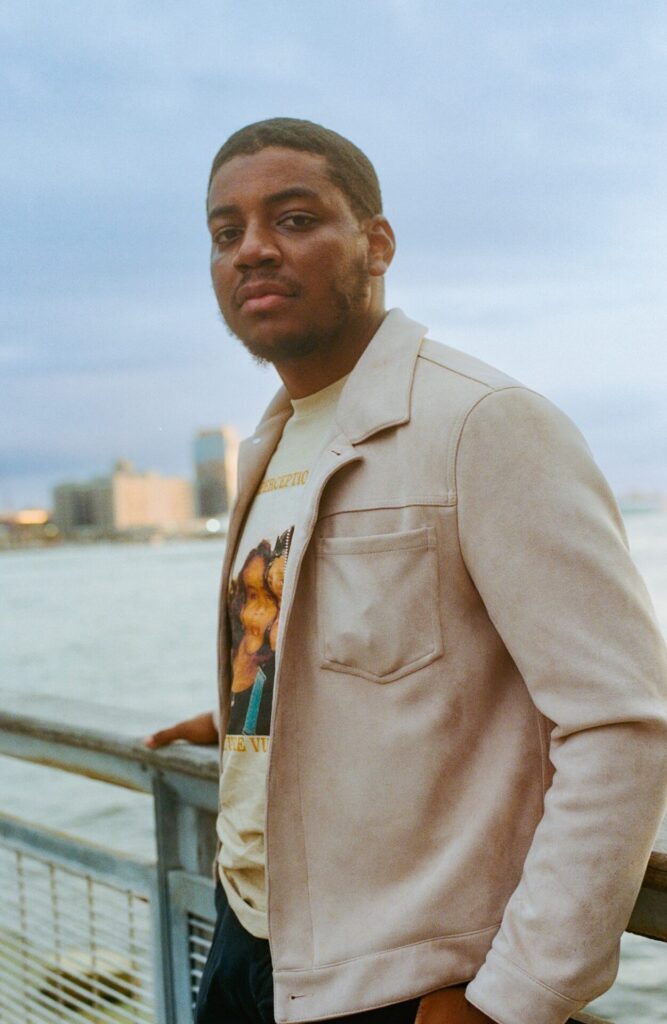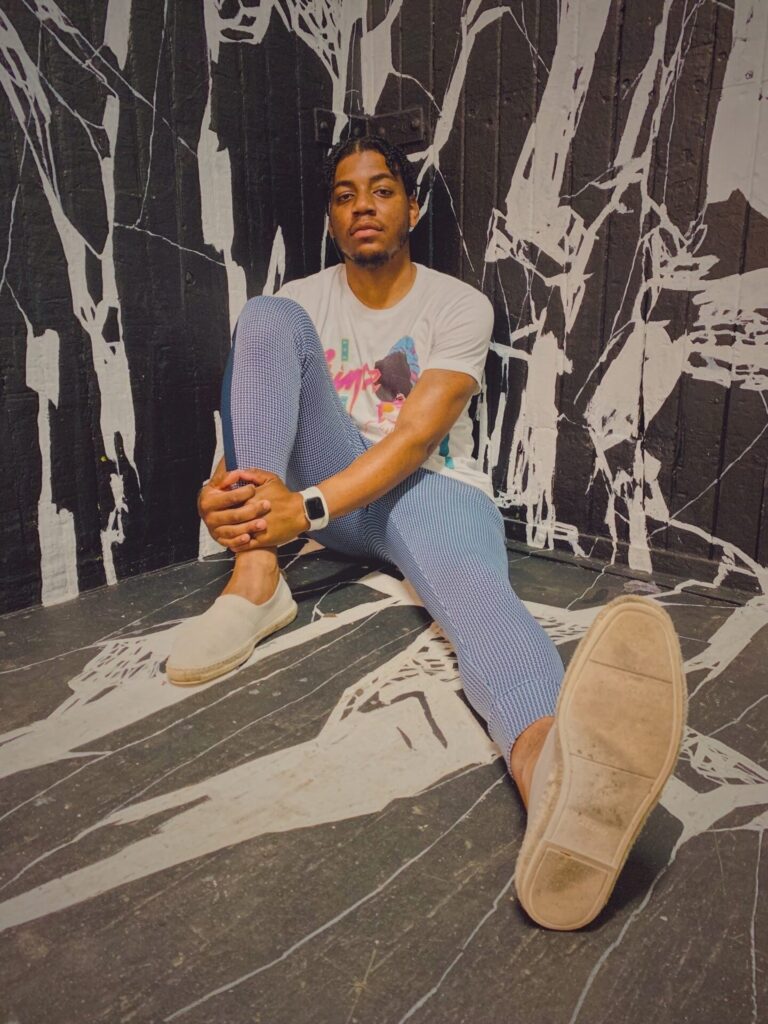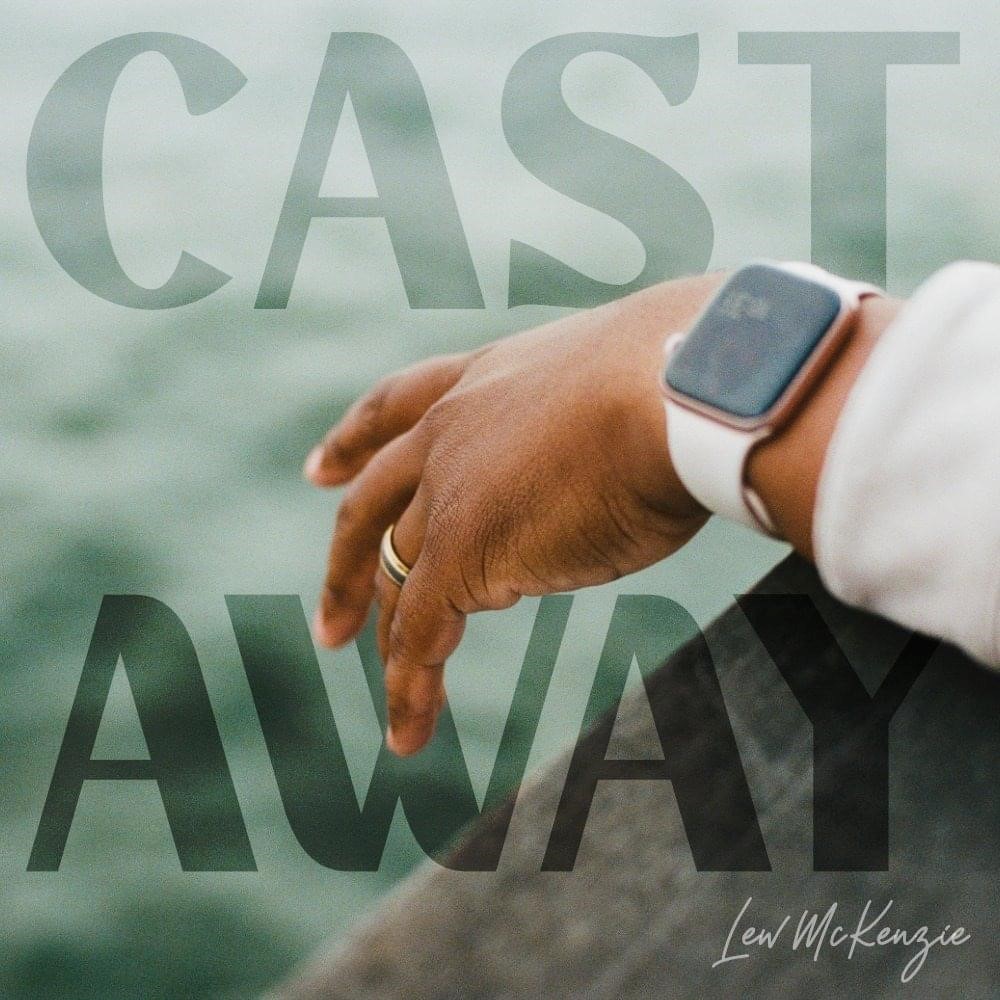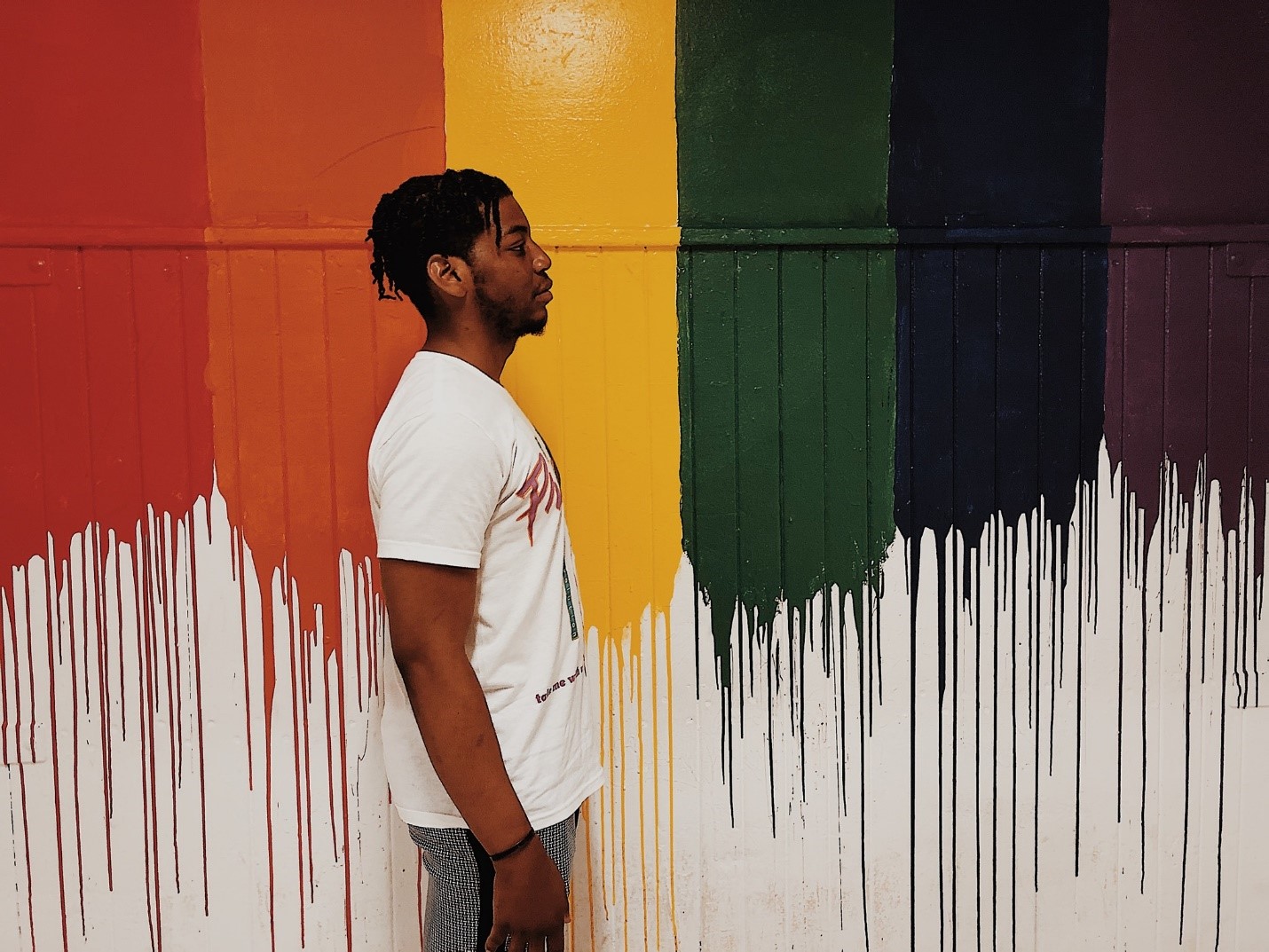Lew McKenzie “engineers a throwback sound” that both sounds familiar and pays homage to the greats of R&B, Soul, and Jazz. He is influenced by the music of Stevie Wonder, Anderson Paak, and Marvin Gaye.
Multi-instrumentalist, songwriter, and producer Lew Mckenzie resides in New York City. Lew has provided his skills and worked as a session and backing musician for numerous artists since 2014. Before beginning a solo career of his own, Lew led a series of sold-out tribute performances with the 13-piece band “Erehmeta” at the renowned B.B. King Blues Club in the center of Time Square.
Lew has been highlighted on numerous websites and blogs, such as BuzzMusic, Melody Bites, and Medium. His music is “crafted out of the purest soul stone,” according to writers, and “embellished with funk jewels.” Through his originality, artistic enrichment, and efforts to inspire enthusiasm in all cultures and genres, he seeks to convey a sense of vintage luxury in all of his music.
“Cast Away,” his most recent song, is about yearning for your destiny. It’s for the kind of person who is always looking for their idea of safety. It serves as a prompt to keep going forward.

1. Can you tell us a bit about where you come from and how it all got started?
LEW MCKENZIE: I am a born and bred New Yorker but The Bronx has my heart. I was introduced to music through my father who had all of the classics on cassette and CD. I really loved all of the Motown stuff by Smokey Robinson and the Miracles, The Temptations, and Marvin Gaye but there was something extremely special about Michael Jackson. Maybe because he was just a kid when he was singing and performing like a seasoned veteran, but seeing a young black boy on that stage made the dream seem attainable. Things really changed when I watched the movie Ray starring Jamie Foxx and saw Stevie Wonder in concert at the Apollo Theater in 2005. I knew then that I wanted to play the piano and sing songs.
2. Did you have any formal training or are you self-taught?
LEW MCKENZIE: I learned piano at a local community center in my neighborhood of the Bronx called Mind-Builders Creative Arts Center. In my eyes, this was my very own Motown. Behind every door, there would be another instrument readily at my fingertips. I spent many weekends wandering the halls and sneaking into vacant rooms to play music on spy on an ongoing dance lesson. Prior to attending, I was able to teach myself some of the basics on piano but I knew if I really wanted my skills and abilities to grow, I was going to need a bit of assistance. My instructors also showed me different genres of music such as jazz and classical music which I eventually grew to love.
3. Who were your first and strongest musical influences and why the name ‘LEW MCKENZIE’?
LEW MCKENZIE: My name is in honor of my late maternal grandmother. Before she married my grandfather, her maiden name was McKenzie. I used my own middle name (the name I share with my father) but altered the spelling of it to bring the whole thing together in a way that honors both sides of my family history. As I mentioned earlier some of first and strongest musical influences are Michael Jackson, Ray Charles and Stevie Wonder. With Michael, I was in awe of how he performed and manipulated his body to the rhythm and groove of his music. He made me want to move my body and dance too. With Ray and Stevie, it was the soul that poured through the speakers every time one of their records was playing. I didn’t have the opportunity to see Ray Charles live but if Jamie Foxx’s depiction in the movie Ray lit the spark, then Stevie Wonder blew the entire lid of. Stevie Wonder is my creative genesis. His use of synthesizers and the Fender Rhodes sounded like nothing I had heard up until that point. I had no knowledge of his music prior to seeing him live but I was made a believer by the end of the performance. Now, whenever I form new chords beneath my fingers, I often wonder what would Stevie think of these?
4. What do you feel are the key elements in your music that should resonate with listeners, and how would you personally describe your sound?
LEW MCKENZIE: There’s no denying that the classic music that came before me is my bedrock. Each of those artists and their music left an indelible mark on my sound. In each one of my songs, you will hear some sort of throwback or “vintage” as well as contemporary elements that will make it all very familiar for my listeners. There’s also a degree of storytelling in my lyrics that is not often heard today. I want my experiences to take my listeners on a journey from the introduction up until the very last note. My goal with my music is to provide a sense of vintage luxury through his creativity, artistic enrichment, and eforts to generate enthusiasm in all cultures and genres.

5. For most artists, originality is first preceded by a phase of learning and, often, emulating others. What was this like for you? How would you describe your own development as an artist and music maker, and the transition towards your own style, which is known as ROCK?
LEW MCKENZIE:
I think I am still in a phase of learning and emulating. You should never stop learning as a musician. I am of the belief that are no new ideas. We are all just finding different ways to express our ideas creatively. If you listen to my music, you can probably pinpoint the inspiration behind it, but there’s also a degree of creativity and uniqueness that allow it to stand out on its own. For me, it was having the confidence to share my music with the world. I have some ideas for how I want to present the next series of songs so I am looking forward to fleshing that out in the studio.
6. What’s your view on the role and function of music as political, cultural, spiritual, and/or social vehicles – and do you try and afront any of these themes in your work, or are you purely interested in music as an expression of technical artistry, personal narrative, and entertainment?
LEW MCKENZIE:
There’s a quote by Nina Simone that touches wonderfully on this idea, “An artist’s duty is to reflect the times.” There is a human element that is missing sometimes in the music of today. We have lived through some of the most extraordinary and harrowing events in recent history, but you would never know that with the music that is coming out now. Some of the greatest artists are able to cover each base and use music as an expression of technical artistry, personal narrative and entertainment. I dedicated my first release Retwizt to the accomplishments and contributions to black culture. With all of my music, I am driven to build a new community within the black, soul, and artistic communities around the globe.
7. Do you feel that your music is giving you back just as much fulfillment as the amount of work you are putting into it or are you expecting something more, or different in the future?
LEW MCKENZIE:
I had to learn that expectations usually lead to great disappointment. Music has already given me much more than I could have ever expected. I just wanted to play the piano and sing some songs. I never imagined I would be able to write my own music and perform it before a room of unsuspecting strangers. There’s plenty one could complain about but I am always taken aback whenever someone decides to listen to one of my songs and ofer me a note of feedback and appreciation.
8. Could you describe your creative processes? How do usually start, and go about shaping ideas into a completed song? Do you usually start with a tune, a beat, or a narrative in your head? And do you collaborate with others in this process?
LEW MCKENZIE:
Everything begins at the piano for me. I will usually start improvising and stumble onto a progression that feels good to me. The narrative follows only after the structure of the music has taken form but even after it undergoes a series of constant adjustments up until the recording process begins. Music is a living and breathing thing so it makes sense that it continues to evolve. I tend to write on my own. There’s a fulfilling intimacy that comes with banging on the black and white keys, making something out of nothing and turning your feelings into music. I love to collaborate in the studio because I think that is a science that benefits when all the great minds share a room together. There’s so much that I have learned from my collaborators and that I plan to use that in each one of my recording sessions moving forward. The best artists are only as strong as the team that they surround themselves with.
9. What has been the most difcult thing you’ve had to endure in your life or music career so far?
LEW MCKENZIE: By far, TikTok is the most frustrating aspect of being a musical artist in this day and age. I understand the draw and appeal of the app but I just don’t feel my music translates well on the platform. It seems the worth of an artist these days is determined by the amount of likes and streams that they have. The quality of music and live performance have taken a back seat to the algorithm. I am learning to have fun with it now, but I do think it has made these labels feel as if it is no longer their responsibly to help promote their artists or their music.
10. Creative work in a studio or home environment, or interaction with a live audience? Which of these two options excites you most, and why?
LEW MCKENZIE: Although I enjoy being in a studio, the recording process can be quite arduous at times and the furthest thing from exciting. Lot of time sitting and waiting for that magic moment that may never actually come. It is exciting to be before an audience and being able to present your art to them. There’s a transference of real energy that can’t be denied when you performing before a live audience. I love the apprehension that comes before you take the stage. I love looking out and scanning the random faces in the crowd as they wait in anticipation. I love the call and response. I think at this stage of my career, I want to perfect my craft and take my performance to another level.
KEEP IN TOUCH:
FACEBOOK | INSTAGRAM | TWITTER | TIKTOK | WEBSITE | YOUTUBE

Photo credits: Corey Smith West

